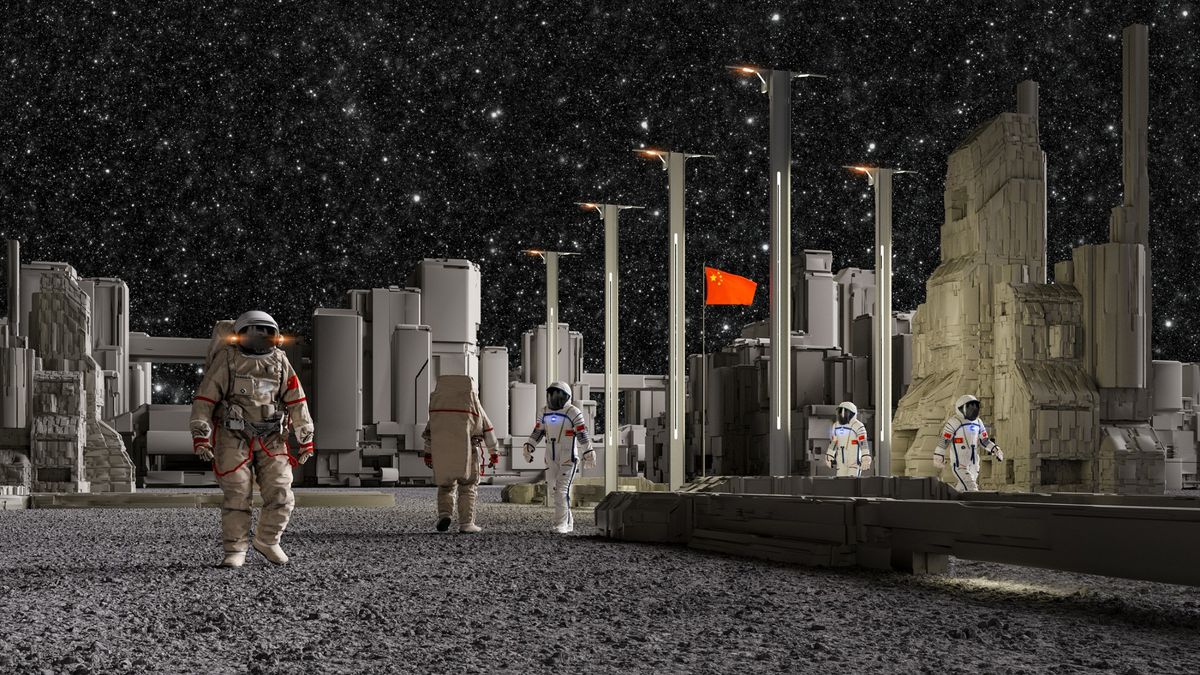The Current State of Space Exploration in the United States and China
The United States is experiencing a notable increase in space exploration activities, witnessing numerous launches and advancements in space hardware. Despite these achievements, the nation is facing a potential threat to its longstanding leadership in space exploration as China emerges as a competitive force in the space sector.
China’s Progress in Space Exploration
The People’s Republic of China has made remarkable strides in space exploration, showcasing impressive feats such as the successful launch of the Long March 5B heavy-lift vehicle and the establishment of the Tiangong space station. In 2019, China achieved a historic milestone by soft-landing the Chang’e 4 rover-lander duo on the far side of the moon. Subsequently, the Chang’e 5 mission marked another triumph by conducting a sample-return mission from the lunar surface.
On March 20, 2024, China launched the Queqiao-2 relay satellite, enabling operations on the far side of the moon in preparation for upcoming lunar missions. China’s ambitious lunar exploration plans include the Chang’e 6 sample return mission, followed by the Chang’e 7 lander and rover mission in 2026 and the Chang’e 8 mission in 2028, featuring a lunar In-Situ Resource Utilization (ISRU) demonstration. With a goal to deploy Chinese taikonauts on the moon’s surface by 2030, China continues to expand its space exploration horizons.
The Risk of Losing U.S. Leadership in Space Technology
Despite the notable achievements of the United States over the past six decades, recent reports suggest that the nation could lose its edge in space technology to China by as early as 2045. The Pentagon’s 2022 report emphasizes the urgent need for action to address China’s rapid advancements in space capabilities, underscoring the importance of a cohesive long-term strategy to maintain U.S. leadership.
Implications and Importance of Space Exploration
Investing in space exploration not only drives innovation and economic growth but also enhances national security and diplomatic relations. Maintaining leadership in space ensures that the United States remains at the forefront of scientific discovery, inspiration, and STEM education. The U.S-China Economic and Security Review Commission highlights China’s strategic plans to dominate space activities within the moon’s orbit, raising concerns about potential economic and security implications.
The Role of Commercial Entities and International Collaboration
While the United States retains a competitive advantage in space exploration, leveraging commercial entities and international partnerships is crucial to sustaining this leadership position. Initiatives such as the Artemis missions and collaborations with global partners can further enhance U.S. space capabilities and foster innovation in the space sector.
Challenges and Opportunities Ahead
Addressing the challenges posed by China’s rapid advancements in space technology requires a strategic approach that prioritizes long-term sustainability and innovation. By harnessing the expertise of the U.S. commercial industry and strengthening international alliances, the United States can navigate the evolving space landscape and secure its position as a leader in space exploration.
Note: An expert panel discussion on these topics will be held at the 2024 Humans to Mars Summit on May 7-8, 2024, at the Jack Morton Auditorium, George Washington University, Washington, D.C.
Image/Photo credit: source url





